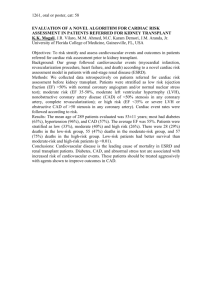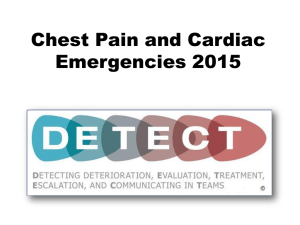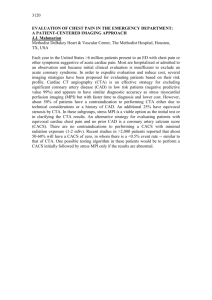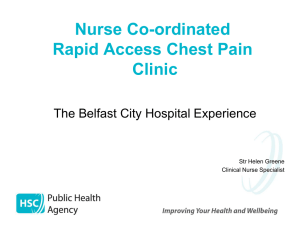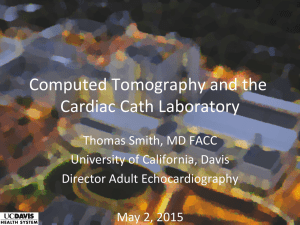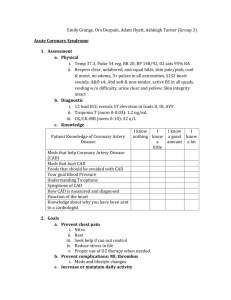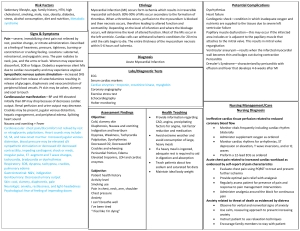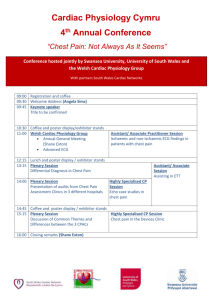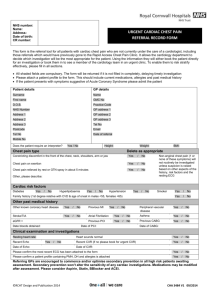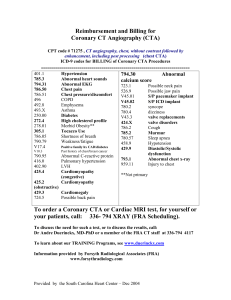exercise stress echocardiography better
advertisement
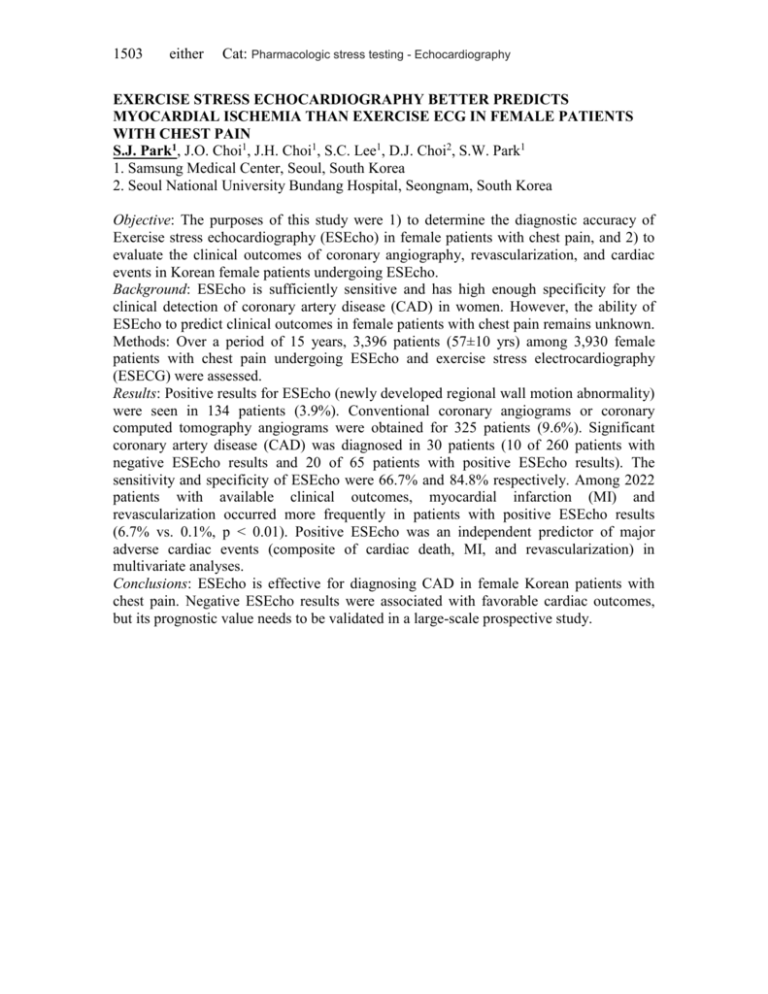
1503 either Cat: Pharmacologic stress testing - Echocardiography EXERCISE STRESS ECHOCARDIOGRAPHY BETTER PREDICTS MYOCARDIAL ISCHEMIA THAN EXERCISE ECG IN FEMALE PATIENTS WITH CHEST PAIN S.J. Park1, J.O. Choi1, J.H. Choi1, S.C. Lee1, D.J. Choi2, S.W. Park1 1. Samsung Medical Center, Seoul, South Korea 2. Seoul National University Bundang Hospital, Seongnam, South Korea Objective: The purposes of this study were 1) to determine the diagnostic accuracy of Exercise stress echocardiography (ESEcho) in female patients with chest pain, and 2) to evaluate the clinical outcomes of coronary angiography, revascularization, and cardiac events in Korean female patients undergoing ESEcho. Background: ESEcho is sufficiently sensitive and has high enough specificity for the clinical detection of coronary artery disease (CAD) in women. However, the ability of ESEcho to predict clinical outcomes in female patients with chest pain remains unknown. Methods: Over a period of 15 years, 3,396 patients (57±10 yrs) among 3,930 female patients with chest pain undergoing ESEcho and exercise stress electrocardiography (ESECG) were assessed. Results: Positive results for ESEcho (newly developed regional wall motion abnormality) were seen in 134 patients (3.9%). Conventional coronary angiograms or coronary computed tomography angiograms were obtained for 325 patients (9.6%). Significant coronary artery disease (CAD) was diagnosed in 30 patients (10 of 260 patients with negative ESEcho results and 20 of 65 patients with positive ESEcho results). The sensitivity and specificity of ESEcho were 66.7% and 84.8% respectively. Among 2022 patients with available clinical outcomes, myocardial infarction (MI) and revascularization occurred more frequently in patients with positive ESEcho results (6.7% vs. 0.1%, p < 0.01). Positive ESEcho was an independent predictor of major adverse cardiac events (composite of cardiac death, MI, and revascularization) in multivariate analyses. Conclusions: ESEcho is effective for diagnosing CAD in female Korean patients with chest pain. Negative ESEcho results were associated with favorable cardiac outcomes, but its prognostic value needs to be validated in a large-scale prospective study.

